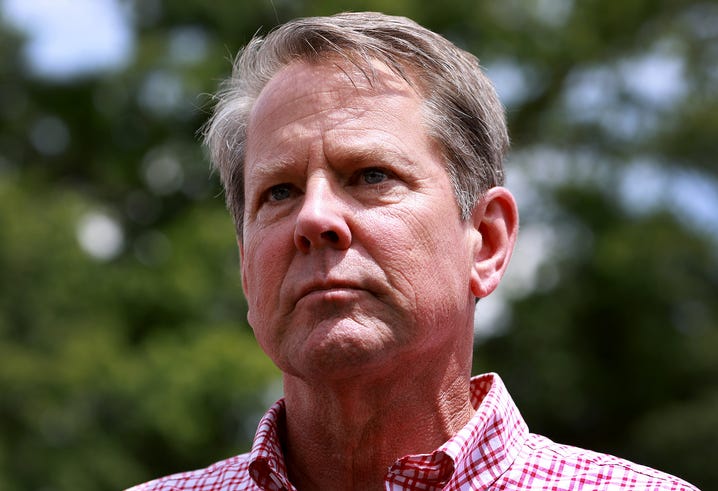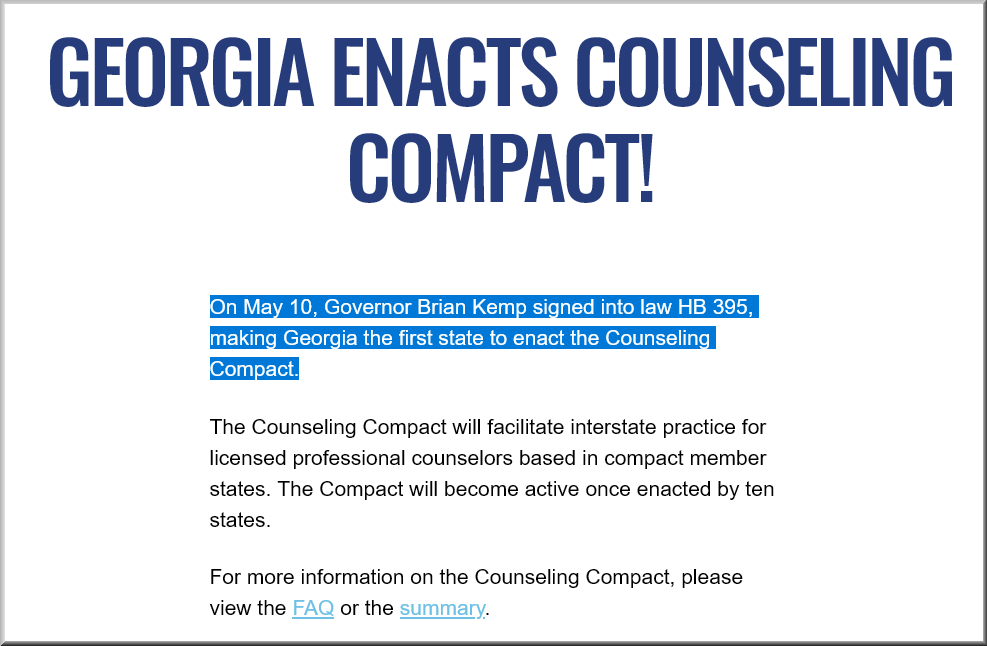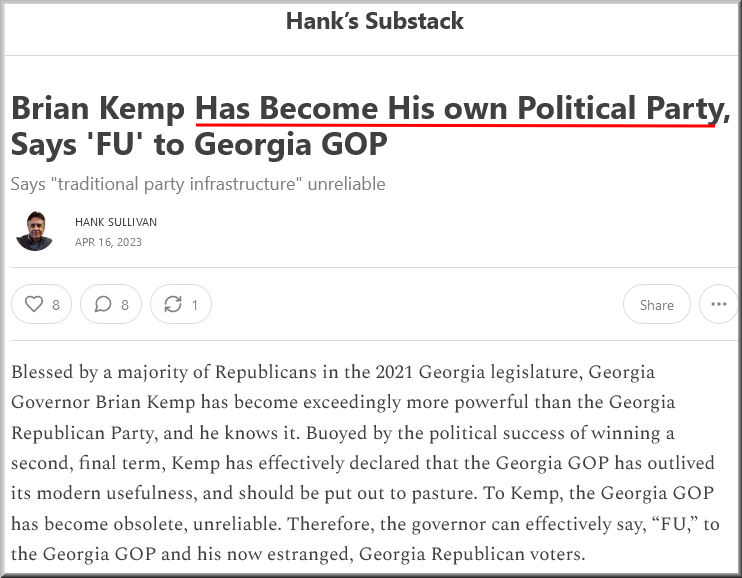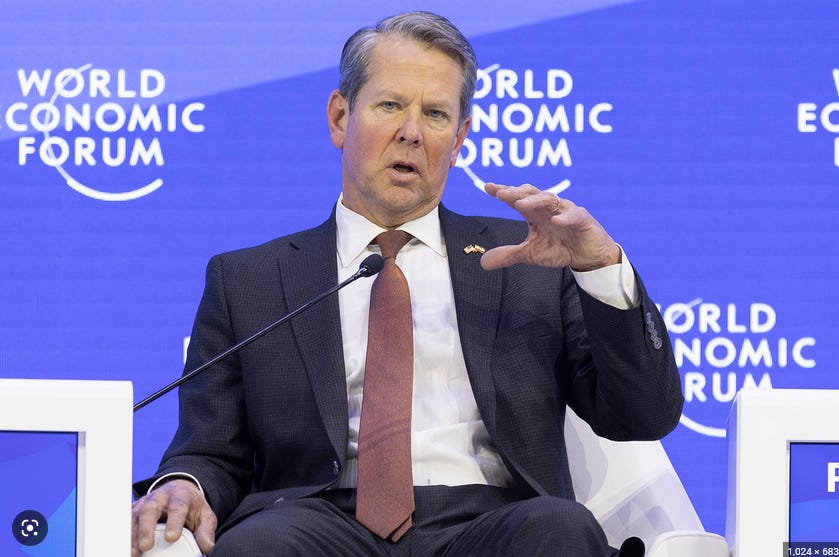In my April 16 Substack, "Brian Kemp Has Become His own Political Party, Says 'FU' to Georgia GOP,” you will recall the Governor’s statement to a gathering of his recently-formed Georgia First Leadership Committee, informing the cadre of elite political contributors, “We can no longer rely on the traditional party infrastructure to win in the future.” I continued,
“Buoyed by the political success of winning a second, final term, Kemp has effectively declared that the Georgia GOP has outlived its modern usefulness, and should be put out to pasture. To Kemp, the Georgia GOP has become obsolete, unreliable. Therefore, the governor can effectively say, “FU,” to the Georgia GOP and his now estranged, Georgia Republican voters.”
Okay, I hear you. You are asking what does that really mean?
Well, ask yourself, what does a political party do? A political party establishes a legally-defined public entity to
Coalesce like-minded people to create a base of political power, and,
Provide funding for candidates the base decides best support their political purposes.
Thus, in April, I declared that Brian Kemp, an individual, albeit the Governor of Georgia, “has become his own political party.” So, now, let’s ask how did he do that and what does that really look like?
To begin answering, let’s look again at what I said in April when I wrote,
In passing SB221, Republicans in the 2021 General Assembly effectively coronated Kemp, handing him the power to raise unlimited campaign funds from anyone and everyone, including out-of-state corporate entities desiring an audience for King Kemp to hear their requests.
Thus, we know Brian Kemp has been planning this move for quite a while. During the 2021 Georgia General Assembly, Republican lawmakers “hopped-to” on a Kemp request, passing into law the ability for statewide elected officials and candidates to appeal for, and receive, unlimited political contributions from well-to-do individuals, but also interested corporations and LLC’s, the shareholders and members of which of course would remain anonymous. Forming his so-called “leadership committee,” Kemp immediately undertook establishing Georgia First, the group to whom he made the declaration I referred above.
In so doing, Brian Kemp accomplished goal #2 above, which is again, to provide unlimited funding for candidates the base decides best support their political purposes.
But what base are we even talking about? Brian Kemp is officially a member of the Georgia Republican Party. The Georgia GOP has nothing to do with Georgia First. The funds are completely separate. Georgia First is essentially a private club in the form of a corporation, a proprietary political organization with no real rules under law regulating its purposes or, importantly, dispensing its funds. There is no tie whatsoever binding the Georgia GOP to Georgia First or any other organizations established under SB221.
Okay, we understand that. But how would Brian Kemp, Governor of Georgia, accomplish goal #1 above, which is to coalesce like-minded people to create a base of political power? Enter, the “Republican Coalition.” As the Georgia Record recently reported, “republican ‘coalitions’ appear to be popping up in counties across Georgia.” As corporations newly-established on the Georgia Secretary of State website, the Georgia Record (GR) listed evidence of at least 17 of these organizations, 16 of which have been registered by one Brent Herrin, you guessed it, a Kemp appointee.
Who is Brent Herrin? Why is he important?
As the Georgia Record reported, in 2021 Kemp appointed Herrin to the Georgia Composite Board of Professional Counselors, Social Workers, and Marriage and Family Counselors. Parenthetically, doesn’t it seem a little outside the role of government to establish a Board of Professional Counselors? Well, I dunno. I mean, what do counselors do? Obviously, they counsel. So, who do they counsel? There you go. Now you are asking the right question. Licensed Professional Counselors (LPC’s) are “master's-degreed mental health service providers, trained to work with individuals, families, and groups in treating mental, behavioral, and emotional problems and disorders.” During the 2021 General Assembly, HB395 passed into law, making Georgia the very first state in the nation to sign on to the Interstate Counseling Compact, now duly-established among over half of the 50 states.
The Interstate Counseling Compact (ICC) allows LPC’s to practice their craft across state lines within states joining the compact. Why is that important? It is important because the ICC works in conjunction with Georgia’s participation in the Interstate Mental Health Compact, established under GA Code § 37-10-2 (2019), also signed into law by Governor Brian Kemp, which effectively establishes a multi-state law-enforcement jurisdiction, in other words a cooperative, interstate law-enforcement dragnet, designed to monitor and even arrest individuals a particular state within the compact legally determines could be a “dangerous, or potentially dangerous” mental heath patient. Licensed Professional Counselors are authorized to “Diagnose and treat mental and emotional disorders, including addictive disorders.” So here we have two laws recently passed in Georgia, signed by Brian Kemp, authorizing the diagnosing of mental disorders by LPC’s, to include whether individuals are “dangerous, or potentially dangerous,” as well as the arrest of those so-diagnosed having escaped their allowed areas of personal recognizance, and the returning those individuals from an arresting state by law-enforcement officials, proceeding directly across state lines back to their state of origin. In many ways, these authorities represent those of a police state.
Because Licensed Professional Counselors are charged with diagnostic authority, their signatures on orders of arrest and return of these escapees across state lines from one state to another are vitally important to the purposes of the Interstate Mental Health Compact. Without the signatures of diagnosticians legally recognized across state lines, the authority to readily arrest and return mental health escapees, would not exist. Mr. Herrin is on the Georgia State Board charged with certifying those who would potentially sign “arrest and return” orders.
How does all that tie in?
I told you all that so you would understand that Brent Herrin is obviously an individual Governor Kemp considers within his personal, “Circle of Trust.”
According to evidence submitted by the Georgia Record, Brent Herrin’s signature emblazons the registration papers of “all but one” of the present 17 county-based Republican Coalitions. Ask yourself a simple question: What do coalitions do? Why, coalitions coalesce, don’t they? Certainly they do. Political coalitions coalesce like-minded individuals to accomplish political objectives, thus accomplishing the first goal of any political party, which I reference above. Thus, between creating and operating Governor Kemp’s Georgia First Leadership Committee and registering “Republican Coalitions” in and among the various counties in Georgia, Brian Kemp is well underway toward the goal of becoming his own political party, as I described his purposes in my April 16 Substack, to wit:
But what political power would a corporate, “Republican Coalition” really possess against that of a legally-recognized political party within the State of Georgia, and in particular within the counties in which they are established? Here is where we arrive at the ultimate purpose of this discussion.
Lawfully, an incorporated political coalition should not rate on the scale of power of a political party organized within the laws of the State of Georgia. Shamefully, apparently that doesn’t matter. The first case in point is that of recent events in Cherokee County, where the law governing the appointment of election board members has been circumvented by the county commission. According to the Georgia Record, “Harry Johnston and the Cherokee County Commission chose to ignore a Republican nominee to the Cherokee County election board and instead appointed someone from this newly formed corporation.” What we are seeing with this election board appointment is best described as a “usurpation,” in other words, a “wrongful seizure of authority.” I say that because the law declares the Cherokee County Commission “shall” choose “from” nominees proposed by the two applicable political parties, Republican and Democrat, to be appointed to the elections board. But then the law seemingly turns around on itself, apparently under some unidentified circumstance, authorizing the commission to bypass the mandate of “shall,” making it an “if,” and substituting its own nominee “if” the commission does not appoint the nominee the law says it “shall” appoint. So, if, say, the Cherokee County Republican Party nominated an individual presently in the county lock-up for a 6-month sentence, the law would allow the commission to bypass that nomination and appoint another candidate. Here, however, nothing like that has happened, yet the county commission effectively chose Brian Kemp’s nominee, in other words, a nominee coming from the Cherokee County Republican Coalition.
Thus, we see in these events the beginning of a pattern, in which forces backing Georgia Governor Brian Kemp are effectively attempting a private takeover of the Georgia Republican Party. That takeover is apparently being accomplished through increasingly controlling the Republican representation normally present within the members constituting county election boards. One cannot say Brian Kemp is not politically savvy attempting all that we are seeing. But we can also expect he has received adequate coaching, having befriended those who run the World Economic Forum, a gathering to whom he received an invitation to speak last winter. So, even though the apparent make-up of the Georgia Republican Party, including an overwhelming number of county GOP’s, has become decidedly Trumpian and “America First,” establishment Republicans, led by Kemp, are making a play to “wag the dog,” exerting political influence at the county level to place their own people onto election boards where vital decisions, such as whether to resist using Dominion voting machines, would be made.









County election boards do not all come up for appointment at the same time. We can bet that this is what Kemp would like to do everywhere.
Unbelievable. In my county Kemp has a RINO cult like following and many of them are the $$$ folks. These people won’t open their eyes